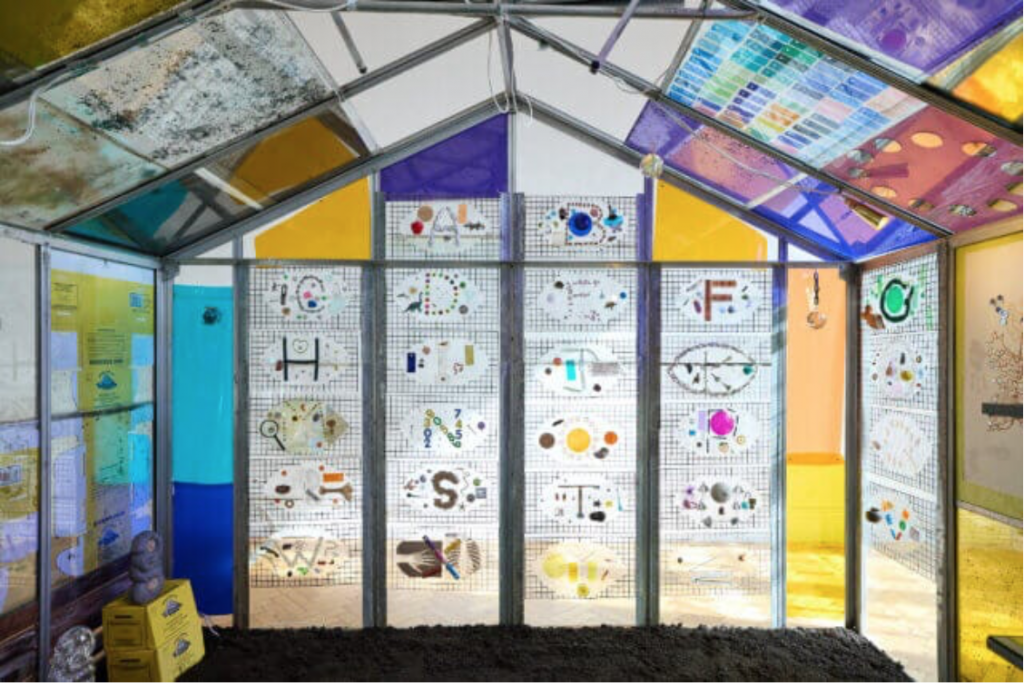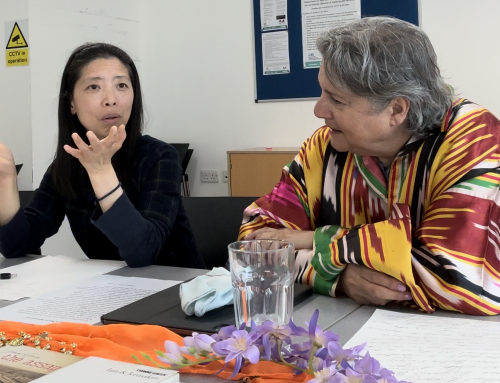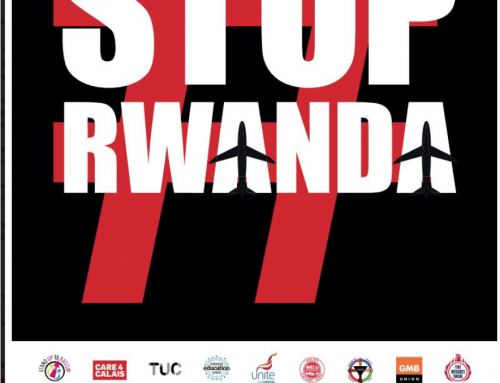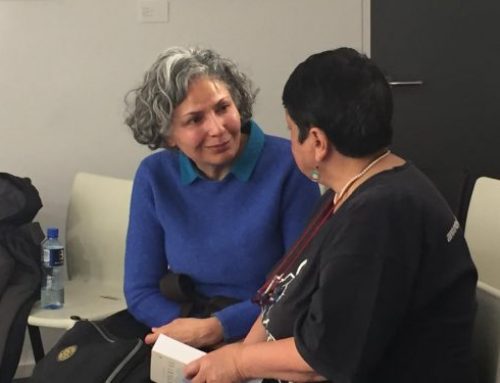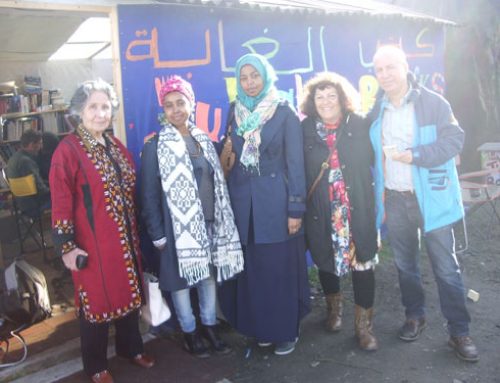Our October 2023 Exiled Lit Cafe
By Catherine Temma Davidson
Tamara Henderson from the Camden Arts Centre website:https://camdenartcentre.org/
It was a rainy Thursday in the middle of October. If you believe in energy fields, you could say that the whole city of London was subdued, reverberating with the shock of the events in Israel and Gaza. I took the train to Finchley Road, a busy artery flowing north, full of trucks and vans and traffic, people dodging the waves the big wheels displaced onto the pavement. I had been invited to read for Exiled Writers Ink, an organisation founded more than twenty years before in the wake of the conflict in Iraq. The title of the evening was Recycling Longing.
I have been a member of Exiled Writers Ink since November 2016, when I read poetry at an event organised in the wake of Donald Trump’s election. As an American living in London, I did not think of myself as an exile, but Trump’s election gave me a taste of what it might mean to be subject to the displacements of history. In the years since, working with writers from refugee and immigrant writers from other countries, doing mentoring and translation work, bearing witness to the words of many brilliant poets and story-tellers from around the world, EWI has been a refuge. I needed to connect to that community of solidarity on this rainy night more than ever.
The Camden Arts Centre is built on a corner going uphill towards Hampstead Heath. It’s an old brick building that was designed originally as the Hampstead Library by the Victorian architect Arnold Taylor. It survived a rocket blast in World War II; today a beautiful garden grows where a row of houses once stood. For decades, the Centre has been a home to local and international artists. In that great English way, the old building has been recycled into a new modernist home for local and international artists, a warm and light-filled space with a café and bookshop downstairs, and exhibitions upstairs.
I was early, so I went to look at the exhibit. Tamara Henderson’s “Green in the Grooves” features large, playful images of roots and plants, some of them with eyes on stalks, gazing back at the viewer, framed in waves. A glass house full of found objects invites you like a fairy palace. I let go of all that was outside and entered into the artist’s green world.
The reading was scheduled for six pm; the five readers arrived, and a couple of other people drifted into the open studio space where three rows of chairs had been set up in a half-circle. Would anyone else come? Was this the wrong night to hold a poetry reading? Little by little, others arrived, and after a delay we began at 6:30.
Valbona Luta was our host, and a fellow member of the EWI board. She told the story of meeting the founder of EWI, Dr. Jennifer Langer, at a solidarity event for refugees from the war in Kosovo in 1999. She talked about the experience of displacement, how longing becomes recycled — over and over — for interrupted histories, friendships, family connections, even particular streets and food. It was a theme many of us were to return to during the evening.
The first reader was Saddiq Al Radi, whose latest collection, A Friend’s Kitchen, was published in 2023 by the Poetry Translation Centre. He grew up in Sudan until he was forced to flee in 2012; he is one of the leading African poets writing in Arabic today. His poems were about the gaps and longings of exile, ungraspable loves glimpsed in a mirror, the bureaucracy that turns time into landfill: “the garden where we didn’t hug/the planetary kiss in the building’s dark staircase.”
The second reader was Momtaza Mehri, a former Young People’s Poet Laureate for London and the winner of the 2019 Manchester writing prize. She was reading from her recently published collection, Bad Diaspora Poems, a title that caught my eye when it was featured in the most recent Poetry Society newsletter. Although the youngest writer there, she was a true presence, reading with authority, intelligence and charm.
After my reading, we had a break and went down to the café. I drank ginger and lemon tea and talked to a man who invited me to stroke his teddy-bear soft, neon pink jumper after I admired its vibrant colour. At this point, we were a crowd; some people went out into the garden and the hum of conversation filled the room. Later than planned, we went back up to the gallery to hear the second half.
Shamim Aziz is a leading Bengali poet who is also a literary activist and educator, fluently at home in two languages and two cultures, with more than 30 books to her name. She wanted to give us a sense of the musicality of her poems in their original language, and for one of them she moved like a dancer as she recited her words.
The final reader was Tamara Wilson, a human rights activist and academic, a post-nationalist poet and human rights activist with Armenian and Pontic heritage from Turkey. She read to us from her novel in verse, a power piece exploring the role of memory in preserving and healing intergenerational trauma.
There was time for a short talk afterwards; someone asked the poets to tell us what they longed for. Momtaza talked about longing for an imagined country, the way the next generation in a diaspora inherits the dreams of a place they may never have been and the responsibility to preserve it.
I talked about how my longing is not for the past but for the future — the day when the aliens finally land and we all wake up to the fact that we are earthlings above all, brothers and sisters of one mother planet.
Heading home on the overground after the reading, my faith was renewed in the power of small face-to-face exchange of words, insights, truths and images, the respect of listening and the vulnerability of sharing, to evoke the wonder of being human.

